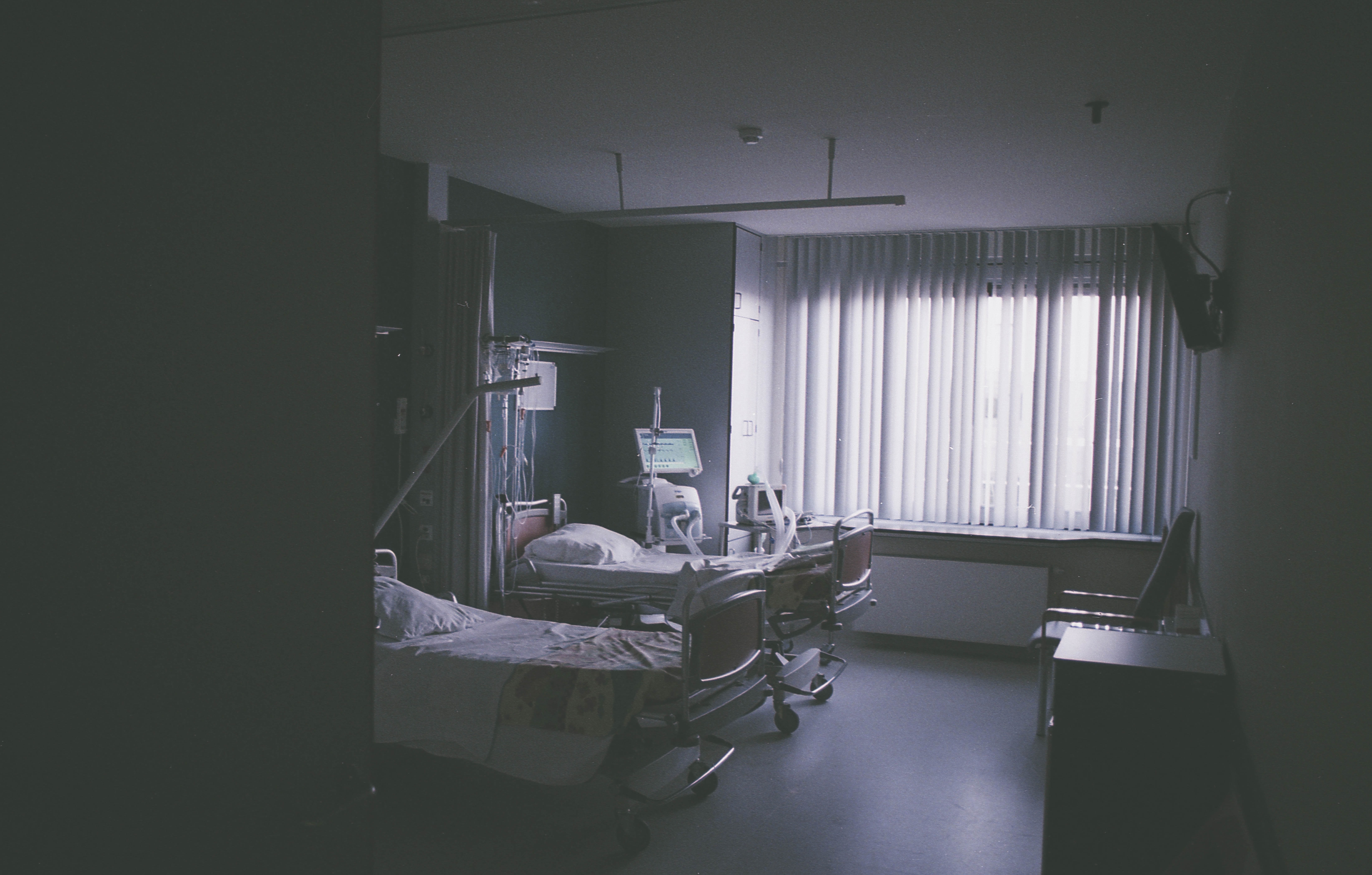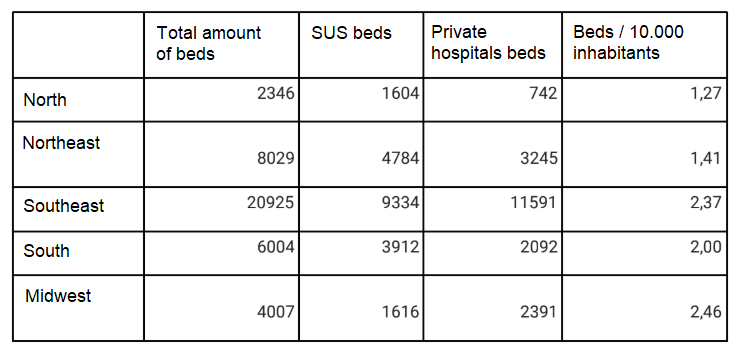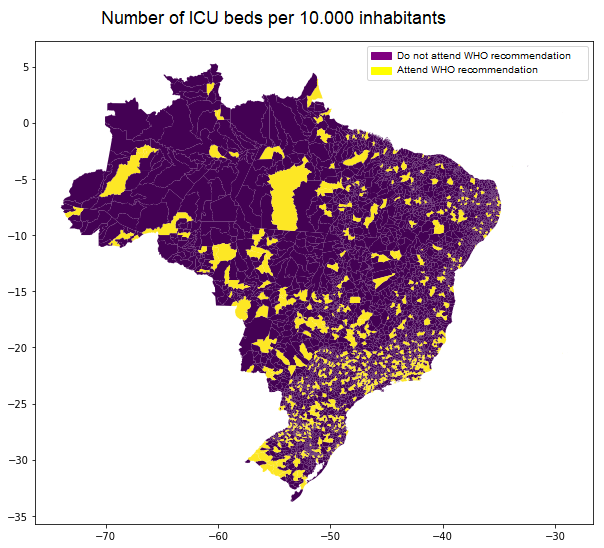A new survey carried out by Bright Cities platform shows that only 10% of municipalities meet the WHO recommendation on the number of hospital beds

Amid the pandemic caused by the coronavirus, Bright Cities carried out an unprecedented survey on the number of hospital beds available in 5,570 Brazilian municipalities. The study revealed the capacity of hospitals to receive patients for admission in intensive care units (ICU), following the recommendation of the World Health Organization (WHO) which demands that countries must have one to three beds available per 10,000 inhabitants. The conclusion is that only 10% of Brazilian cities offer at least one ICU bed for every 10,000 inhabitants within SUS – the Brazilian public health system. When we consider the beds available in the private health network, the number of municipalities with at least 1 bed per 100 thousand inhabitants rises to 704, representing 12.6% of the total.
Nationally, Brazil has 41,311 beds that could receive patients infected by Covid-19, a total that fits the WHO requirements of offering at least one bed for every 10,000 inhabitants. It is important to note, however, that many of them are already occupied by patients with other diseases. The total amount considers positions in infant and adult ICUs, as well as specific beds for isolation cases, but excluding neonatal ICU beds. The data were released by Datasus, a database of the Ministry of Health.
Most of the beds are located in the Midwest, South and Southeast regions, as shown in the table below:

The cities of Campo Largo/PR (25.6 beds / 10,000 inhabitants), Campina Grande do Sul/PR (18.4 beds / 10,000 inhabitants), Nerópolis/GO (18.4, beds / 10,000 inhabitants), São Caetano do Sul/SP (14.9 beds / 10,000 inhabitants), and Piancó/PB (12.4 beds / 10,000 inhabitants) are the ones that offer the largest number of beds, both public and private, per group of 10,000 inhabitants.
“Up-to-date data and comparative statistics are the most assertive tools to carry out efficient urban politics to face emergency situations such as the current one, and to create medium and long-term development parameters”, says Raquel Cardamone, founder of Bright Cities. “Based on internationally recognized indicators, Bright Cities platform allows managers and citizens to become aware of the condition of each city and thus create the best strategies to deal with each challenge”, adds.

Want to find out your city’s diagnosis? Visit our platform homepage and type the name of your city on the search field. You can also make a free registration on our platform to have access to more information!




